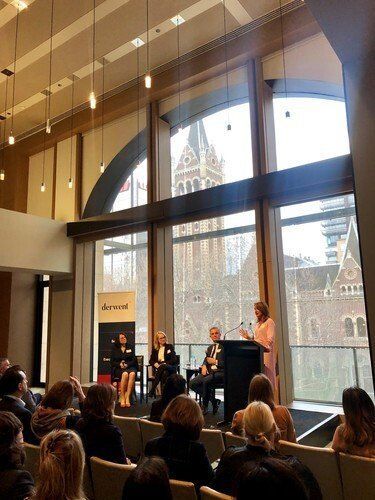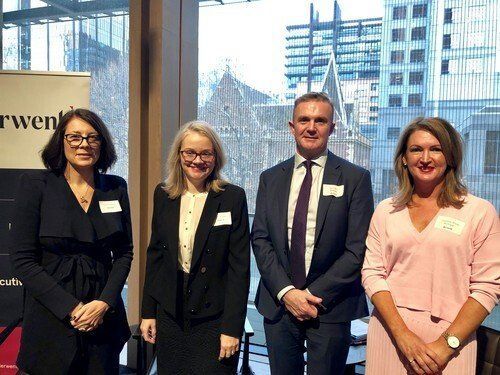News
Can You Reach Your Potential If You Play It Safe?

HRD'S - Can you really reach your potential if you play it safe (and just stay in Collins Street!)?
Courtney Blood, Principal Derwent was joined by Athalie Williams, Chief People Officer, BHP and Davina Stanley, MD Clarity College and Clarity Thought.
The key themes that were discussed centred around HR having the courage and necessary commerciality to influence the executive team and the board in a way that the people and culture agenda is not considered an add on. Playing it safe doesn’t get results.
Be Brave and Courageous!
Have conversations with the directors as and when needed and be open with the executive team about your interaction with the board.
Use data, be commercial, be purposeful . Have a clear point of view and utilise data and commercial information to illustrate and prosecute your case. Davina shared with the group her thoughts on articulating your message, if you can’t concisely put your message onto one page, then do you really know your topic?
Be structured and very clear about the purpose.
Frame your presentation based on the following question:
“As a result of the communication, I want my audience to….” E.g. agree with the proposal. It will shift the emphasis of your communication to action focused rather than just passive information sharing.
The Hayne report is having a significant and far reaching impact.
Although there are many cultural measures available, there is a need to ensure the right mechanisms are in place to measure cultural risk. This is an area of uncertainty for many organisations and it’s crucial to identify leading indicators rather than lag indicators e.g. starting to see cultural dashboard developments.
Executive remuneration is continuing to be an area of internal and external scrutiny. Financial versus nonfinancial measures. HR’s role in this debate is to ensure that effective KPIs are in place that appropriately flow down to company, team and individual targets. The structure of executive remuneration needs to be reflected in the values and priorities of the organisation from a cultural and commercial perspective. Typical measures such as employee satisfaction surveys are inadequate. Available data is not being utilised effectively and with boards taking more a “show me, not tell me", HRD’s need to be truth tellers to the board – utilising available information and articulating the issue clearly with an action plan ready.
You can’t build your career if you stay in the same lane.
They suggested the need for HR to ensure that they understand the financial impact of any initiatives - if it's cost out, then, how much? If it’s business integration, then what was the saving? If it’s talent strategies, then can you show the difference the talent made to the business performance?
Pay attention to this information, and then use it to describe your contribution – LinkedIn, your resume, in interview.
To grow your career, playing it safe isn’t going to be enough of a differentiator – you need a willingness to change job location, a desire to move onto broader business-based roles (e.g. organisational transformation roles) and the ability to build strong collaborative relationships outside of the function.
Traditional career paths in HR are changing. Skills required will include strong project or program experience with lean and agile environments. Larger business partnering functions are making way for much smaller executive business consulting capability, underpinned by strong shared service functions.
We discussed what makes best in class HR.
- Highly curious – burning interest in how things work.
- They take the approach that it’s business first. Often, they have been in consulting or broader business roles. They avoid advocating solely on behalf of the employees without understanding the demands and priorities of all stakeholders.
- Take the time to deeply learn the business.
- Stay connected to the workforce – spend meaningful time with employees and follow the processes, not just the odd site visit.
- Critical that time has been spent in programme/project management – understand how different levers are used in the business e.g. time, spread and scope; everyone is competing for capital within the business.
- They take risks in their career, location, role. They have a bigger plan for themselves. It's not about the need to tick all the boxes, e.g. I would like to only work in the CBD.


Share this Article
Recent Articles






